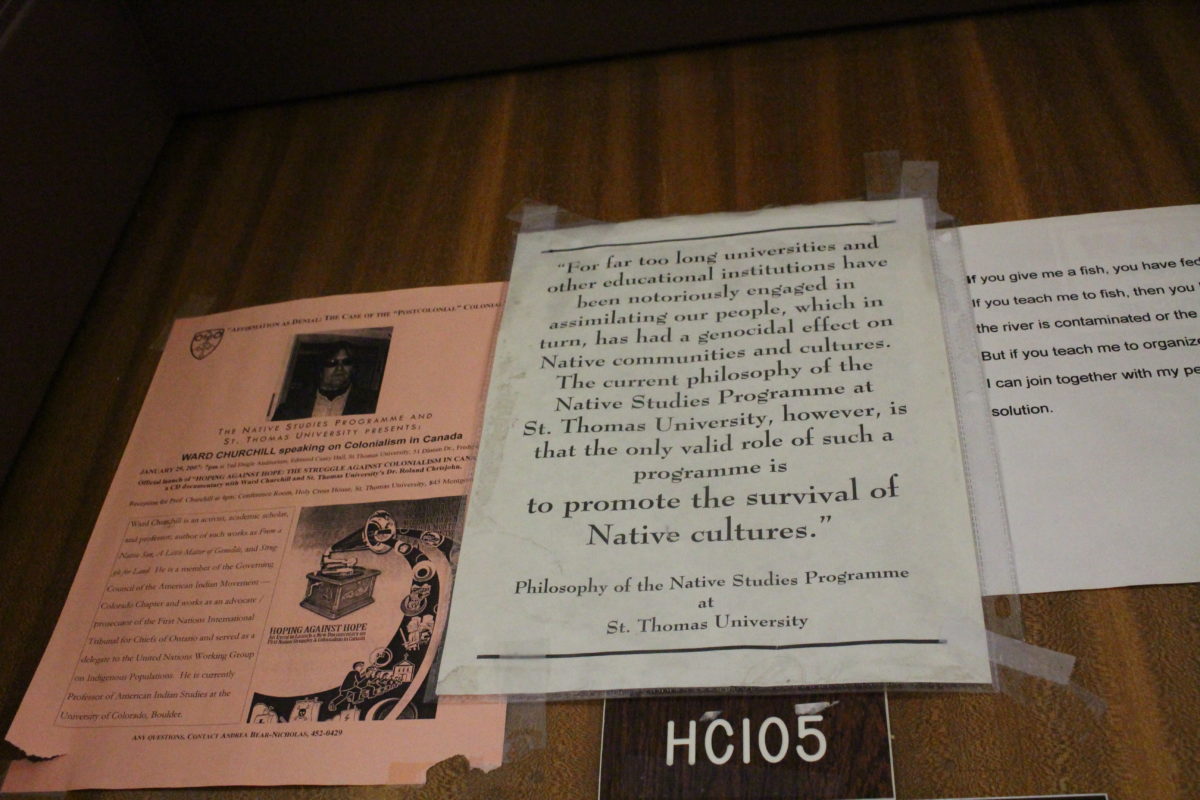St. Thomas University has been in talks of increasing Indigenous content in curriculums after a call to action from the Truth and Reconciliation Commission, but some students feel the time of Indigenization is well overdue.
Alexa Metallic, the Indigenous representative of St. Thomas University Students’ Union, believes native studies should be mandatory in all Canadian universities. She finds these changes particularly necessary for a university that markets itself so much towards Indigenous communities.
“St. Thomas has one of the highest population of Indigenous students and has the Aboriginal Education Initiative where the purpose is to recruit Indigenous students,” Metallic said.
“There is so much ignorance and lack of education surrounding Indigenous issues and having this taught would help close that gap.”

Third-year student Jonathan Duffy agreed, and said while it doesn’t have to be in every course, it should be in courses like criminology, sociology and even journalism and communications.
“Indigenous history is rich and powerful and avoiding it is like pretending it didn’t happen,” Duffy said.
“My grandmother was in the residential schools and I see everyday how its affected her, my mother and my sibling. It needs to be taught and students need to be aware so that history doesn’t repeat itself.”
In 2015, Murray Sinclair, Chairman of the Truth and Reconciliation Commission, named education as being vital to helping Canada achieve reconciliation. Since then St. Thomas has reportedly been one of several schools to answer that call.
While only two of the 100 Canadian universities have now made it mandatory for undergraduates to take a native studies class, associate vice-president Jeffrey Carleton said STU, like many other universities, is still discussing a plan of action.
“St. Thomas recognizes that we need our students to be more informed on the history, on the current situation and on the culture of Indigenous communities in the country, and there’s different approaches on how to get there,” Carleton said.
The university is looking to incorporate Indigenous content in one of three ways: through mandatory native studies courses, a selection of courses in several departments or including Indigenous content in existing courses.
Carleton said although this is a top priority, it will take years to properly review the options, select the best one, have each course approved by the Senate and put the tactic into effect. Right now the review is only in its infancy and rushing the process could lead to lower-quality decisions, he said.
At the St. Thomas University Students’ Union meeting on Nov. 16, vice-president of education Brianna Workman mentioned the possibility of bringing a proposal forward to the St. Thomas University senate on the topic of making it mandatory to take native studies courses. She said she and fourth-year student Mandy Richard, who is a member of the senate committee for Indigenization, discussed the idea.
Workman and Richard declined to comment on the potential proposal. The Aquinian reached out to native studies faculty, who also declined to comment.